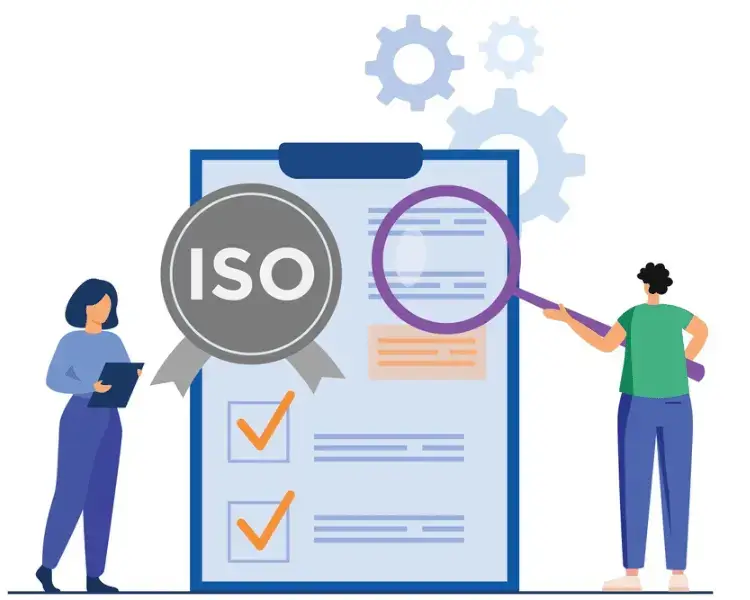E-commerce businesses face various challenges in the quick-paced world of internet business that might slow their development and capacity for profit and growth. They have to cope with issues like spending a lot of money on advertising, high customer acquisition costs to change consumer shopping habits.
In this post, we’ll discuss how e-commerce companies may overcome their key obstacles by utilizing digital marketing and maximizing digital marketing strategies. As these pain points require effective solutions. Let’s Begin!
High customer acquisition costs:

Digital marketing offers cost-effective solutions for acquiring new customers. By implementing targeted advertising campaigns, businesses can reach their desired audience with precision.
You can maximize platforms like Google advertisements or Pay per click ads and social media advertisements if you own an E-commerce business to effectively spend your money on marketing. You may better understand your clients and target the proper demographic with these tools.
You may target your efforts on the individuals who are most likely to make purchases from you by gathering information about your audience and classifying them into groups based on their traits and behaviors. Doing this helps you increase your consumer base.
Competition from Retail or brick-and-mortar stores:

In order to effectively compete with retail or brick-and-mortar stores, e-commerce businesses need to establish a strong online presence. In this care of e-commerce Digital marketing plays an important role in building brand awareness and driving traffic to e-commerce site.
Additionally, social media marketing and influencer collaborations can help create brand advocates and generate buzz around the products or services offered by e-commerce businesses.
Fraud and chargebacks:

Digital marketing can aid in addressing the issue of fraud and chargebacks by implementing robust security measures. E-commerce businesses can educate their customers about secure online transactions and the importance of strong passwords.
Implementing two-factor authentication and encrypted payment gateways can provide an additional layer of security to the ecommerce site for safer user experience.
Digital marketing can also help in building trust and credibility by showcasing customer testimonials and reviews, assuring potential buyers of the legitimacy and reliability of the e-commerce business.
Shipping costs:

Digital marketing can assist in managing shipping costs by offering strategic solutions. E-commerce businesses can implement targeted promotions such as free shipping thresholds or discounted shipping rates for specific products or time-limited offers.
Additionally, optimizing logistics and partnering with reliable shipping providers can help reduce shipping costs. Digital marketing techniques like email marketing and remarketing can also be used to re-engage customers who abandoned their carts due to high shipping fees, offering incentives or personalized discounts to encourage them to complete their purchase.
Returns and exchanges:

Efficiently managing returns and exchanges is crucial for customer satisfaction and retention. Digital marketing can help in this aspect by providing clear and transparent return policies on the e-commerce website.
Customer support channels, such as live chat and chatbots, can be integrated to provide immediate assistance and resolve any issues related to returns or exchanges.
Through targeted email marketing campaigns, businesses can also communicate with customers, providing updates on the return process and offering personalized assistance to ensure a seamless experience.
Customer service:

While e-commerce businesses may lack the same in-person interaction as physical stores, digital marketing can help bridge the gap by providing exceptional customer service that physical stores fail to deliver.
Social media platforms can be utilized to promptly respond to customer inquiries and provide personalized support.
Implementing AI-powered chatbots on websites can offer real-time assistance, addressing common customer queries and concerns. By leveraging digital marketing tools, businesses can proactively engage with customers, creating a positive and interactive experience that fosters loyalty and repeat purchases.
Compliance with regulations:

Staying compliant with regulations is crucial for e-commerce businesses to maintain trust and credibility. Digital marketing can help businesses navigate this challenge by providing accurate and up-to-date information regarding privacy policies, data security measures, and tax compliance on their websites.
Regularly updating terms and conditions, cookie policies, and ensuring compliance with GDPR (General Data Protection Regulation) and other relevant regulations can be effectively communicated through email newsletters and social media platforms, keeping customers informed and assured of their data privacy and security.
Technology challenges:

Digital marketing enables e-commerce businesses to stay ahead of technology challenges by adapting to emerging trends and platforms. By embracing mobile commerce and optimizing websites for mobile devices, businesses can cater to the growing number of mobile shoppers.
Social commerce integration, such as shoppable posts on Instagram or Facebook, can provide a seamless purchasing experience for customers.
Additionally, staying updated with emerging technologies like augmented reality (AR) and virtual reality (VR) can create immersive shopping experiences, enhancing customer engagement and driving conversions.
Security risks:

Digital marketing can help e-commerce businesses mitigate security risks by implementing robust security measures. Utilizing SSL certificates to secure website connections and encrypting customer data can safeguard against data breaches.
Regular security audits and vulnerability assessments can identify and address potential vulnerabilities. Educating employees about security best practices and implementing multi-factor authentication can help prevent unauthorized access to sensitive information.
By communicating these security measures through digital marketing channels, businesses can build trust and assure customers of their commitment to protecting their data.
Changing consumer behavior:

Digital marketing empowers e-commerce businesses to adapt to changing consumer behavior and preferences.
By leveraging data analytics, businesses can gain insights into consumer trends and behaviors, enabling them to personalize marketing messages and offers.
Email marketing automation and personalized product recommendations based on past purchases can enhance the customer experience and drive repeat sales. Additionally, leveraging social media platforms and influencer marketing can help e-commerce businesses stay
connected with their target audience, understand their evolving preferences, and adapt their marketing strategies accordingly.
Conclusion:
The e-commerce industry is not without its pain points, but digital marketing offers powerful solutions to overcome these challenges. By leveraging the vast array of digital marketing tools and strategies available, e-commerce businesses can address high customer acquisition costs, competition from brick-and-mortar stores, fraud and chargebacks, shipping costs, returns and exchanges, customer service limitations, compliance with regulations, technology challenges, security risks, and changing consumer behavior.
Embracing digital marketing as a core component of their business strategy allows e-commerce businesses to thrive in the ever-evolving online marketplace and drive sustained growth and profitability.
Why Digitwon is best digital marketing agency for ecommerce
DIGITWON is the best digital marketing agency for eCommerce businesses. First, we have a track record of achievement, providing outstanding results to their clients.
Our team is made up of skilled and qualified people who are familiar with the in and out of eCommerce digital marketing. We stay up to date on the latest products, ensuring that your company stays a step ahead of the competition.
At DIGITWON we are dedicated to personalized eCommerce digital marketing services and attention and will adjust your strategies to suit your special needs.
DIGITWON is online marketing for eCommerce companies looking to grow in the digital landscape.
Fill Out the Form and Get FREE Audit- [ Digital Marketing FREE Audit]
FAQs (Frequently Asked Questions)
Q: What are the benefits of digital marketing for e-commerce businesses?
A: Digital marketing offers cost-effective customer acquisition, helps build brand awareness, and enables businesses to adapt to changing consumer behavior.
Q: How can digital marketing help reduce shipping costs for e-commerce businesses?
A: Digital marketing techniques such as targeted promotions and re-engagement strategies can incentivize customers and optimize logistics to reduce shipping costs.
Q: How does digital marketing contribute to customer service in e-commerce?
A: Digital marketing allows businesses to engage with customers through social media and AI-powered chatbots, providing prompt assistance and personalized support.
Q: What role does digital marketing play in addressing security risks in e-commerce?
A: Digital marketing helps businesses implement security measures, educate customers about online safety, and build trust through effective communication.
Q: Can digital marketing help e-commerce businesses adapt to changing consumer behavior?
A: Yes, by leveraging data analytics, personalized marketing messages, and social media platforms, e-commerce businesses can stay connected with their target audience and tailor their strategies accordingly.

